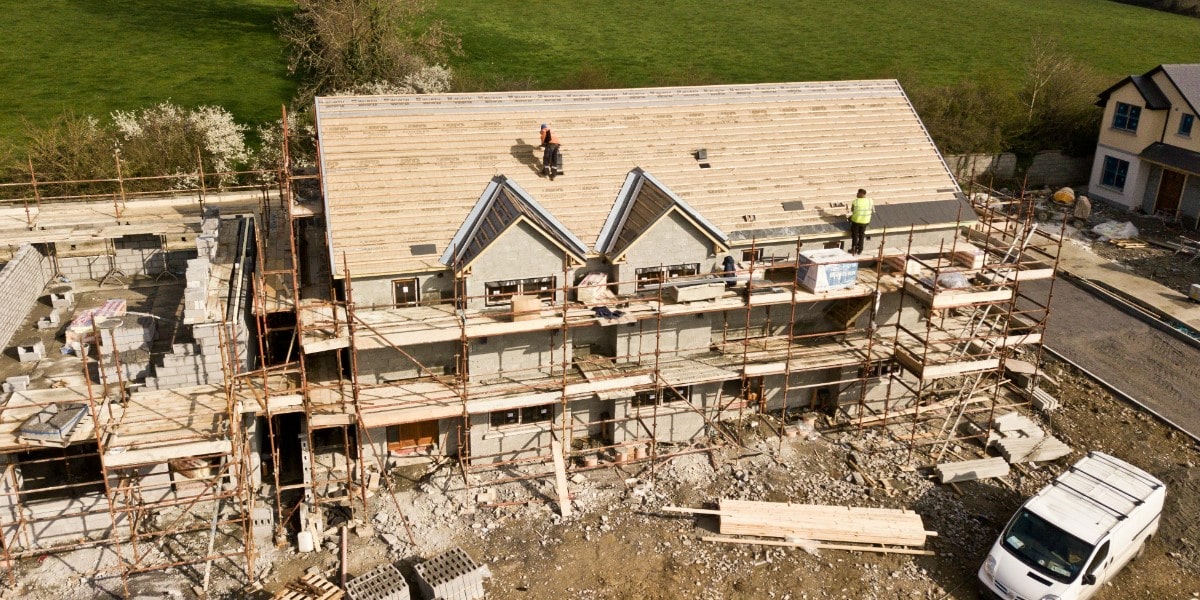You should thus be considering entering the real estate market. Sounds fantastic, just like it is. Being a real estate entrepreneur is like playing a high-stakes game of Monopoly—but with actual money and, well, without free passes. Basically, hoping to profit, you buy, sell, or invest in real estate. Not only should one purchase a house to live in; this is about running a business out of real estate. And hello, things are getting crazy with 2025 approaching! New tech tools abound everywhere (yes, like Plerdy, which improves the performance of your website—pretty useful when you’re marketing those listings). But be not misled; it is not all flash and fast money. Although there are many new possibilities in real estate these days, it also presents some difficult problems. Knowing your thing, planning cleverly, and being patient all help. Absolute game-changers. Sure, some people find luck quickly; most successful entrepreneurs work, learn, and adjust. About ready to see how it’s done? Allow us to delve right in.
Understanding Real Estate Entrepreneurship

What is a Real Estate Entrepreneur?
A real estate entrepreneur sees potential everywhere and does not only buy real estate. They turn around houses, handle rentals, or invest in commercial structures to create money. It’s about running a business out of real estate, not only about owning it. Entrepreneurs trade, take chances, and manage everything from property searches to sales negotiations. Conversely, a passive entrepreneur typically merely funds a project and waits for the returns—no late-night calls on leaky ceilings or contractor searches. The entrepreneur is? They are among the midst of it, driving events.
Key Benefits and Challenges
Entering real estate entrepreneurship sounds exciting and it can be! Financial freedom, seeing your possessions increase in value, and working when you want—yep, no boss—all present opportunities. Not sugar-coated, though, let me say it. The market might turn around quickly on you. You will have upfront financial needs, and the risks? They exist. One poor investment may cost thousands. The game demands balancing these highs and lows; not everyone is ready for that rollercoaster.
Steps to Become a Real Estate Entrepreneur
Educate Yourself
Enter the realm of real estate entrepreneurs without any background? That’s a short path to quickly losing money. You really have to study. Enrol in online courses; Udemy, Coursera, and Skillshare abound in courses not likely to empty your pocket. A real estate or business qualification will help your entrepreneur profile stand out. Mentors are gold—finding an experienced entrepreneur who made mistakes and survived? Beautiful but priceless. Trends change rapidly; disregarding market data runs the danger. Track online searches using tools like Plerdy to find areas of demand heating up. And legal affairs? Actually, if you ignore zoning rules and taxes, they could destroy your business.
Choose Your Real Estate Niche
Real estate entrepreneurship calls for concentration. Trying residential, business, flip, and rental projects all at once? serious error. Choose based on your market demand and entrepreneurial objectives what fits. Often a safe start are residential properties as they have lesser entrance expenses and faster negotiations. Business projects? higher risk along with higher profit. If you know what you’re doing, house flipping can offer quick profits. If you wish passive income, consider renting real estate. Just keep in mind—point-of-sale flipping homes is useless if people aren’t buying in your neighborhood. Look at the facts; avoid guessing.
Develop a Comprehensive Business Plan
A blueprint is absolutely necessary for building a house. Likewise with the path of a real estate business. Your business plan is like your survival gear. Start with market research—find out from Plerdy what possible tenants or buyers seek for in your chosen area. Add financial forecasts; what is your budget? You project what kind of profit? Be honest; guessing leaves empty accounts. Plan for the worst as well—unexpected repairs, market collapses, or late-paying tenants. Risk management is not only a catchphrase; it’s how entrepreneurs survive. Add backup plans and emergency cash.
Build a Reliable Network
Real estate entrepreneurship is not one-person job. Your business is fueled by connections. You want trustworthy agents, honest builders, and lenders free from frauds. Not sure where to run across them? Participate in local real estate events, join Facebook groups, and visit forums including BiggerPockets. A treasure for contacts are property auctions. Talk to people; you never know who knows someone with a lot of fantastic experience. Guidance? Mentoring You might save thousands of dollars here. Veteran entrepreneurs reveal blunders you avoid having to pay for. Smart network, not only broad one.
Secure Financing and Capital
The worst of them is money. One cannot run a real estate business without it. Although they are slow, traditional loans work. While they frequently charge more, private lenders move faster. collaborations? They can increase capital but choose your partners carefully; nothing worse than a disorganized financial dispute. Want better terms for your loans? Review your credit score. Pay off debt, control new credit, and maintain low balances. Stability is much loved by lenders. Don’t discount alternative finance; seller financing and crowdsourcing sites might be friendly choices for entrepreneurs. Every dollar you save in interest is another one your business could use.
Being a real estate entrepreneur is not easy, but with knowledge, plan, and contacts you can create a firm that stands the test. It’s about wise actions, not only quick ones. What therefore ought to be your next action?
Making Your First Real Estate Investment

Conduct Market Research
Although starting your first real estate venture is interesting, allow the thrill affect your judgment. Market research forms the foundation of your business success as a real estate entrepreneur. omitting this phase? huge error. You have to know what the local real estate market is doing—are prices plummeting or climbing? Plerdy and other tools show you which neighborhoods draw attention by helping to examine internet user activity. Though they provide insightful analysis of property values, Zillow and Redfin are not the end of the story. Actual entrepreneurs start walking the streets. Speak with locals, visit nearby businesses, and look at fresh construction. New Starbucks opening under my direction? That often points to growing demand for homes. Especially important are demographics. Families concentrate on schools; rental property entrepreneurs consider public transportation and job growth. Ignoring these specifics could result in a property nobody wants, which is terrible business.
Select and Purchase the Right Property
The interesting phase is now choosing a property. Real estate entrepreneurs search for prospects with great promise rather than only for low-cost purchases. Compare like qualities to determine reasonable rates. Want to flip? Take great caution in estimating renovation expenses; unexpected will blow your budget. Before you act, figure possible return on investment. great demand for rentals? Well. Is a complete gut overhaul needed? Think carefully unless your budget is clear-cut. Be firm while negotiating. Usually listing high, sellers hope you will bite. Use inspection results to lower the cost; every dollar saved increases the profitability of your business. Once the sale is under way, documentation comes in. Never miss consulting a qualified real estate agent or attorney. Businesses such as Keller Williams and RE/MAX have representatives who have guided entrepreneurs thru challenging negotiations. Slow down, go over everything, and keep in mind that this is a business investment that may either propel or ruin your path of entrepreneurship—not only a property.
Manage and Maintain Your Investment
For a real estate developer, owning land marks only the beginning. You now have to run it like a professional. Happy tenants guarantee consistent rental money; so, pay attention to their calls. Fix that leaky faucet quickly; delays can harm your bottom line as well as your name. Regular maintenance is not optional; it is rather necessary for a real estate business to run successfully. Neglect can cause a little problem to become a major repair expenditure. Keep current with local property rules as well; non-compliance fines are a hassle you do not need. If you would want a hands-off approach, you can engage a property management business; many entrepreneurs maintain things orderly using programs like Buildium or AppFolio. In either case, good management maintains the value of your property and keeps your business growing. See your investment as a real business since it is just that.
Scaling Your Real Estate Business
Expand Your Portfolio
Real estate business scaling is about being a clever entrepreneur, not only about acquiring more properties. Why not look at commercial real estate or short-term rentals if all you invest in are single-family homes? Diversification releases new profit sources and distributes risk. Through joint ventures, some entrepreneurs pool money and distribute the work by teaming with others. Selecting the correct people will benefit both of you. Using present property equity to finance fresh deals is another often used tactic. Strong portfolios are much sought for by banks; this increases their likelihood of providing better loan terms. But, don’t go all-in without some thought. Pursuing development without direction can cause your dream in real estate to become a financial mess. One must have balance. Big-time entrepreneurs like Barbara Corcoran expanded wisely, constantly considering risks before diving in, not scaling by rushing.
Leverage Technology and Tools
In 2025 running a real estate business without technology? That is like driving with closed eyes—dangerous and antiquated. Those that welcome tools have a big advantage as entrepreneurs. Rent collecting, tenant handling, and maintenance requests are easy with property management systems like Buildium or AppFolio. If you are marketing real estate online, platforms like Plerdy help evaluate website traffic—gold. Imagine knowing the ideal moment to purchase or sell merely from charts and numbers; data analytics can expose trends no human can see. Matterport and other real estate marketing tools produce 3D tours, therefore sparing you from countless in-person showings. Though it seems expensive, IT investments pay off. More time to concentrate on what actually counts—growing your business — comes from better efficiency. Clients also appreciate your using innovative ideas. It demonstrates your forward orientation rather than your historical one.
Continuous Learning and Adaptation
The market in real estate moves quickly. Prices are flying one minute; then they are declining. Those who keep educated ahead of others. Reading news is great; but, going to industry events? even better. Hearing professional speakers and networking with other entrepreneurs can inspire ideas you never would have imagined. Mentors are also game- changers. Someone who has gone through it all can prevent expensive errors. Take Grant Cardone; he did not create his real estate empire by stillness. He changed, grew knowledgeable, and kept ahead of the times. You also should. Enrol in online classes, listen to podcasts, or go to neighbourhood entrepreneur meetings. Your business grows more robust the more knowledge you possess. Not a sprint, real estate is a marathon. Keep getting better; while some drop out, you will remain in the race.
Common Mistakes to Avoid
Starting out in real estate as an entrepreneur can be thrilling, but be careful—mistakes happen faster than you would believe. One major error is undervaluation of expenses. Renovations always cost more; what looks like a $10,000 fix before you blink amounts to $20,000. Another often used error is ignoring market research. Purchasing a beautiful house nobody wants to live in? overall corporate catastrophe. unsatisfactory tenant choice That is a headache just waiting to strike—missed rent, property damage, constant tension. How then to avoid these dangers? Always set aside more for unanticipated expenses. Look into market trends using sites like Zillow and Redfin. And undertake appropriate background checks when selecting renters. See your real estate investments as a major business rather than a pastime; they will save you time, money, and plenty of aggravation.
Tips for Long-Term Success

Develop Strong Relationships
Real estate entrepreneurship is about people not only about buildings. Developing trust with clients, contractors, and business partners may either propel or destroy your career. Imagine suddenly needing a last-minute fix; if your contractor believes you, they would show up when you call. Customers value openness and honesty; pleased customers make recommendations. Online forums like BiggerPockets and networking events are treasure mines for contacts. Don’t undervalue getting coffee with a friend or writing a basic thank-you note; it helps to maintain close ties. Small deals become large possibilities in a trustworthy network.
Maintain Financial Discipline
Making money in real estate is fantastic; however, maintaining it? The secret is that. Profits too quickly spent by entrepreneurs often result in bankruptcy. There is no negotiable about budgets. Always budget for taxes as the IRS won’t forget you and save some for emergencies—things break, ceilings leak. Investing earnings in new real estate expands your business more quickly than buying fancy cars. Warren Buffett even teaches living below your means. FreshBooks or QuickBooks enable you to monitor expenses, therefore preventing overspending. Stay diligent; you will create a business that is long-lasting rather than only a transient gain fading.
Conclusion
Being a successful real estate entrepreneur is about doing the work, keeping sharp, and not giving up when things become complicated; it is not some magic trick. You start by learning the ropes, selecting a niche, and using wise business plan actions. Indeed, there will be ups and downs in the market and money problems; nevertheless, persistence pays off. Imagine building a portfolio to generate consistent revenue while Tuesday morning coffee is being drunk. Not terrible, right? So, do not only read; act as well! Little actions now can lead to a business that shapes your future. Stay tenacious, make wise decisions, and your real estate path may surprise you in the finest manner.
